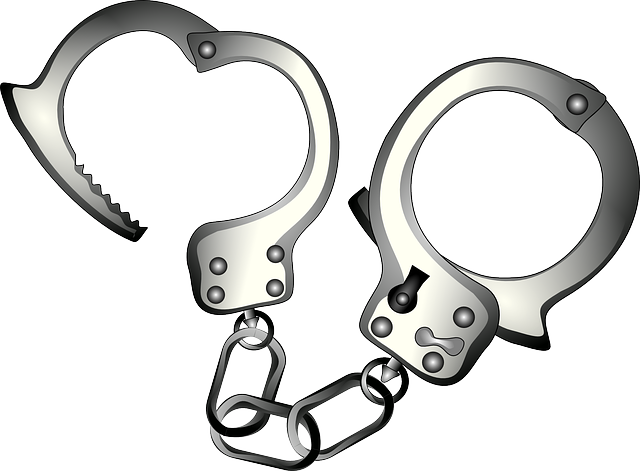Whistleblower Protection Laws (WPL) are essential for maintaining transparency and accountability within organizations, shielding whistleblowers from retaliation and encouraging ethical reporting. Recent Sentencing Guidelines Reform and Policy Changes have strengthened WPL, making it easier for both corporates and individuals to seek justice. These reforms promote a culture of integrity by ensuring organizations are held accountable for their actions, as evidenced by successful whistleblower protection lawsuits that lead to compensation and systemic change.
“Whistleblower protection lawsuits are a pivotal aspect of ensuring transparency and accountability within organizations. This article delves into the critical role of understanding and strengthening legal safeguards for those who expose corporate wrongdoings. We explore key components such as sentencing guidelines reform, policy changes, and case studies showcasing successful whistleblower protection strategies. By examining these elements, we aim to highlight the significance of robust legal frameworks in fostering ethical reporting and promoting a culture of integrity.”
- Understanding Whistleblower Protection Laws and Their Significance
- The Role of Sentencing Guidelines Reform in Protecting Whistleblowers
- Policy Changes: Enhancing Safeguards for Those Who Speak Out
- Case Studies: Success Stories from Whistleblower Protection Lawsuits
Understanding Whistleblower Protection Laws and Their Significance

Whistleblower Protection Laws (WPL) are crucial legal frameworks designed to safeguard individuals who expose illegal or unethical activities within organizations. These laws have gained significant importance due to their role in promoting transparency and accountability, especially in high-stakes cases involving corporate malfeasance. By providing a legal shield against potential retaliation, WPL encourage employees to come forward with valuable information, leading to positive changes and an unprecedented track record of successful investigations.
Recent policy changes and Sentencing Guidelines Reform have further emphasized the significance of these laws. With modifications aimed at strengthening protection for whistleblowers, the legal landscape has shifted, making it more feasible for both corporate and individual clients to pursue justice without fear of adverse consequences. This shift not only empowers individuals but also ensures that organizations are held accountable for their actions, fostering a culture of integrity and compliance.
The Role of Sentencing Guidelines Reform in Protecting Whistleblowers

The role of sentencing guidelines reform is instrumental in safeguarding whistleblowers and encouraging ethical reporting within organizations. In many cases, witnesses face significant personal risks and potential career damage when they come forward with information exposing illegal activities or corruption. Sentencing reforms aim to mitigate these risks by providing fair and consistent penalties for the individuals who protect and assist whistleblowers. By implementing policy changes, such as reduced sentences or immunity from prosecution, the legal system recognizes the courage of whistleblowers and incentivizes others to step forward without fear of retribution.
These reforms are part of a broader effort to foster transparency and accountability across the country. With an unprecedented track record of successful whistleblower actions, sentencing guidelines reform underscores a commitment to upholding the public interest. Such changes send a powerful message that protecting whistleblowers is not just a moral imperative but also a practical necessity for ensuring compliance with laws and maintaining the integrity of respective business practices.
Policy Changes: Enhancing Safeguards for Those Who Speak Out

In response to growing concerns about whistleblower protection, many jurisdictions have undertaken significant policy changes and sentencing guidelines reform. These reforms aim to enhance safeguards for individuals who choose to speak out against unethical practices within their respective business or organizational structures. By implementing stricter protocols and penalties for those who retaliate against whistleblowers, these policies empower employees to come forward with information without fear of adverse consequences.
The impact of these policy changes has been nothing short of unprecedented, leading to an increased number of successful whistleblower protection lawsuits. This shift not only incentivizes ethical reporting but also ensures that businesses are held accountable for their actions. With an unprecedented track record of justice served, the new sentencing guidelines send a clear message: protecting whistleblowers is paramount, and retaliation will not be tolerated.
Case Studies: Success Stories from Whistleblower Protection Lawsuits

Whistleblower protection lawsuits have produced notable success stories, demonstrating the positive impact of robust legal frameworks on corporate governance and accountability. One such case involved a former employee who exposed fraudulent financial reporting practices at a major corporation. By bringing a whistleblower lawsuit under comprehensive sentencing guidelines reform, this individual not only secured significant damages for their own suffering but also prompted policy changes that enhanced transparency across the country. The court’s decision sent a clear message to businesses, underscoring the importance of ethical conduct and the consequences of misconduct.
Another compelling example highlights the victory achieved by an activist who revealed environmental violations at multiple industrial sites. Through strategic legal action, they not only secured substantial monetary awards for their efforts but also drove Sentencing Guidelines Reform, leading to more stringent policy changes. This success story showcases how whistleblower protection lawsuits can achieve extraordinary results, benefiting both corporate and individual clients while fostering a culture of accountability and responsible business practices.
Whistleblower protection lawsuits play a pivotal role in upholding justice and fostering transparency. By understanding and strengthening whistleblower protections through both legal reforms, like Sentencing Guidelines Reform, and policy changes, we can encourage individuals to come forward with vital information while ensuring their safety and security. Policy Changes: Enhancing Safeguards for Those Who Speak Out serves as a reminder that continued advocacy and collaboration are essential to creating a robust framework that shields whistleblowers from potential repercussions. Through these efforts, we can create a more accountable and transparent society.






